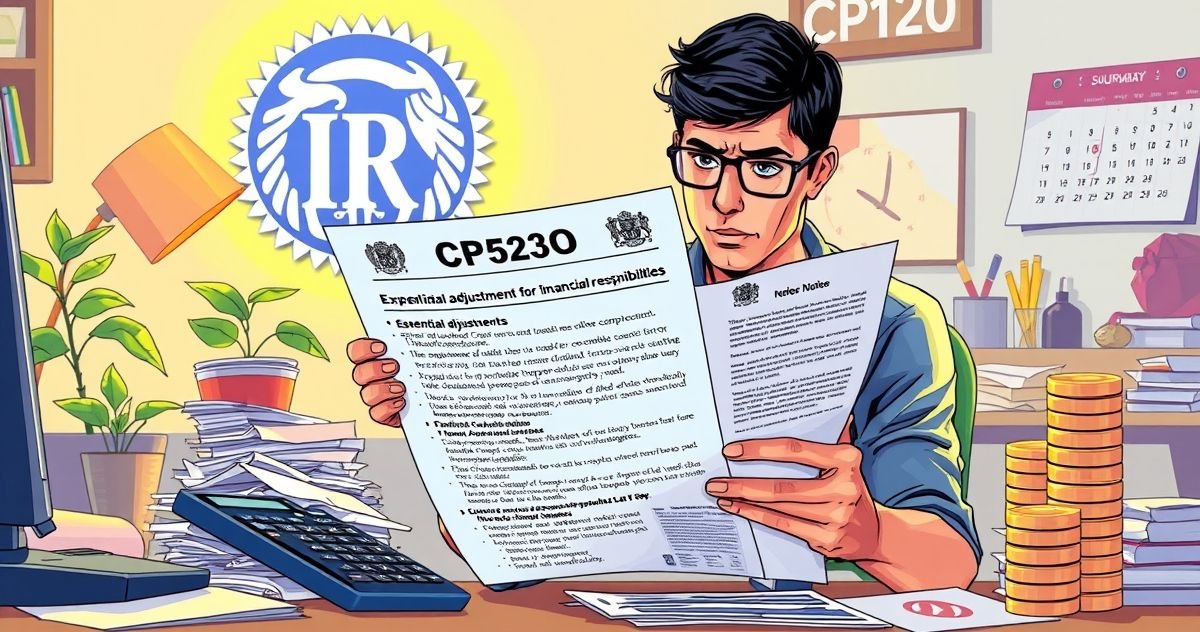What is the CP523O Notice?
The CP523O Notice is a critical form issued by the Internal Revenue Service (IRS) to inform taxpayers of important updates or changes to their tax account. These notices are typically triggered by discrepancies identified between what a taxpayer has reported on their returns and what the IRS has on file, potentially due to third-party audits or mismatches in reported income, deductions, credits, or financial data.
Primary Purpose of the CP523O Notice
The primary purpose of the CP523O Notice is to alert taxpayers to potential issues that require immediate attention or correction, thereby preventing future problems and aiding the government in maintaining accurate tax records. These notices help keep taxpayers informed, providing them with a chance to understand and rectify any discrepancies before they escalate into larger issues requiring further enforcement actions.
Key Features of the CP523O Notice
Explanation of Adjustments
Like other IRS notices, the CP523O provides detailed explanations for any adjustments made to the taxpayer’s account. These adjustments might include corrections for misreported income, revised credits (such as the Earned Income Tax Credit or Child Tax Credit), or re-evaluated deductions, particularly those that need further substantiation or were initially miscalculated.
Impact on Financial Obligations
The notice will specify how these adjustments impact the taxpayer’s overall financial obligation, whether it results in a higher balance due, a reduced refund, or potentially an increased refund. Critical information like the amount owed, if applicable, and the due date for payment will also be provided to ensure clarity and adherence to IRS schedules.
Compliance Instructions
The CP523O often includes instructions regarding compliance actions that the taxpayer needs to undertake, such as making payments, providing additional documentation, or possibly filing amended returns to address unresolved issues. Adherence to these instructions is paramount for avoiding further complications.
Relevant Filing or Compliance Requirements
Upon receiving a CP523O Notice, taxpayers must meticulously review the information laid out to understand the nature of discrepancies and comply with necessary actions outlined. This might include:
- Verifying and possibly correcting records according to IRS data.
- Providing any requested documentation supporting their initial claims or corrections.
- Engaging with IRS representatives if they disagree with adjustments.
- Meeting any payment obligations promptly to avoid accruing additional penalties or interest.
Penalties or Consequences for Non-Compliance
Ignoring a CP523O Notice may lead to various unfavorable outcomes. Unresolved issues can result in compounded penalties and interest on outstanding balances. Furthermore, continued non-compliance might trigger enforcement actions such as tax liens or levies, significantly impacting financial health and credit scores. In severe cases, consistent discrepancies or ignorance of correcting notices might increase the likelihood of IRS audits in subsequent years.
Importance of the CP523O Notice in Tax Resolution
The CP523O plays a vital role in aiding taxpayers towards a clear resolution of potential tax liabilities before they intensify into more significant financial problems. By actively engaging with the notice, taxpayers can prevent the accumulation of interest and penalties, leading to a reduced financial burden. Moreover, timely compliance facilitates better relationships with the IRS, often resulting in more favorable considerations such as installment agreements or alternative resolutions when unable to meet financial obligations immediately.
Significance for Financial Compliance
Beyond resolving immediate discrepancies, the CP523O Notice serves as an essential tool for taxpayers to evaluate their tax reporting practices continuously. Being informed about these notices helps mitigate future compliance issues, encourages better record-keeping, and supports taxpayers in utilizing IRS resources like online accounts to maintain an ongoing understanding of their tax obligations.
Conclusion
The CP523O Notice is among the vital IRS communications designed to alert taxpayers of crucial changes in their tax account, promoting accurate financial records and proactive resolution of potential liabilities. It emphasizes the significance of timely response and compliance, ensuring taxpayers manage their account obligations effectively, ultimately securing a healthier financial standing with the IRS and avoiding broader financial repercussions.



